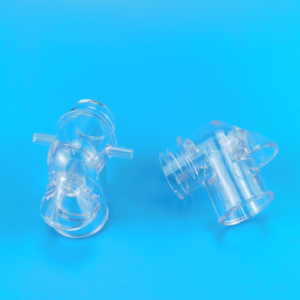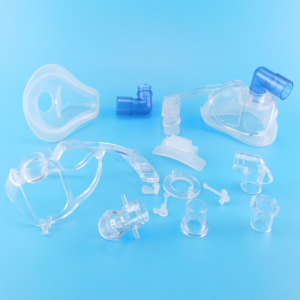Hey guys! It’s me again, coming to you with another blog from the one and only YJC Polymer. So, have you followed our blog? If you have, we’d love to hear from you! We’ll listen to any comments or feedback you have on our previously published blogs.
Today our topic is: The Ascendancy of LSR Liquid Silicone Rubber: A Market Set to Surge, we will briefly introduce the importance of LSR, and after that, which are the areas in which he is used, without further ado, let’s begin!
In recent times, LSR (Liquid Silicone Rubber) has emerged as a versatile material. Its unique properties, particularly when compounded with metal inserts and plastics, have established it as the material of choice for creating waterproof silicone structures. The applications of LSR span various industries, with a significant presence in consumer electronics, automobiles, and the medical sector.
Characteristics of LSR and Main Application Areas:
LSR boasts a myriad of advantages, including robust waterproof performance, elasticity, excellent aging resistance, non-toxicity, stability, and commendable electrical insulation. This versatility allows for the creation of serialized and specialized products tailored to different shapes and uses. The primary application areas include:
Consumer Electronics such as Mobile Phones:
Various components of mobile phones leverage LSR for waterproofing. This includes high-precision communication accessories, three-proof tablets, liquid silicone seal ring cases, and structures like liquid silicone+plastic+hardware Cato.
Specific components like Type-C interfaces and earphone hole structures also benefit from LSR waterproofing.
Smart Wearables:
Products like the Apple Watch, designed to support deep waterproofing, utilize LSR for its waterproof properties.
Handheld Terminals:
LSR finds application in the manufacturing of three-proof handheld PDAs and AUTOID9 handheld terminals, ensuring durability in challenging environments.
Connectors:
Connector waterproofing is pivotal across industries such as industry, communications, consumer electronics, automotive, and military sectors. LSR contributes to achieving IP68-level protection, especially in power and data connectors.

The use of metal injection molding (MIM) in connector manufacturing, exemplified by Tyc’s IP68-grade Micro USB 2.0 connector, further underscores LSR’s role in creating dust and water-resistant connectors.
Automotive and Medical Fields:
LSR/LIM applications in these fields include seals, collector seals, plug seals, highly transparent lenses, radial seals, standard single-piece seals, O-rings, spark plug protection covers, and steering wheel switch surface finishing.
Liquid Silicone Medical Supplies:
LSR is instrumental in the production of various medical items such as sealed infusion systems, type dialysis filters, hearing aid assemblies, and tourniquets for blood sampling.
 Other Fields:
Other Fields:
Beyond these sectors, LSR makes its mark in diverse applications such as baby liquid silicone nipples, mother’s nipple shields, and spray shower heads.
The escalating utilization of LSR across these industries underscores its pivotal role in modern manufacturing, particularly in ensuring waterproof integrity and enhancing product durability.
Okay, that’s it for now. But stay tuned for more great blogs from YJC Polymer and don’t forget to let us know what you think. Until next time, be careful, man!